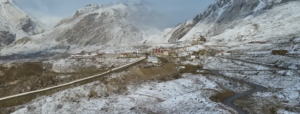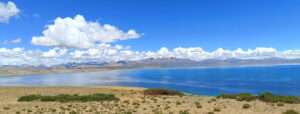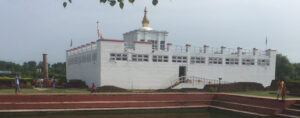The Upper Mustang trek in November during peak season is an adventure that should be on every trekker’s bucket list. This remote region of Nepal offers stunning views, ancient monasteries, and a glimpse into a unique culture that has remained untouched by the outside world.
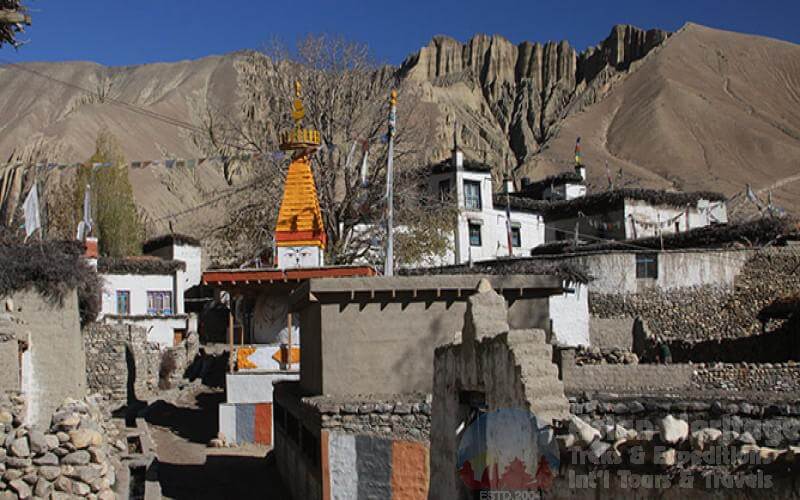
As you make your way deeper into the region, the landscape begins to transform. The lush greenery is replaced by barren hills, red sandstone cliffs, and stunning rock formations. The contrast is striking, and it’s impossible not to be awed by the dramatic scenery that surrounds you.
So, are you ready to embark on the journey of a lifetime? Strap on your hiking boots, pack your bags, and get ready to experience the breathtaking beauty of Upper Mustang in November.
Altitude
The average altitude of the Upper Mustang region is around 3,800 meters above sea level. The region is situated in the high Himalayan mountain range, and the altitude varies from 2,800 meters to 4,000 meters. Trekking in this region requires a good level of physical fitness due to the high altitude.
Weather Conditions and Temperature
In November, Upper Mustang undergoes the transition from autumn to winter, marked by a notable drop in temperature. The daytime temperature in the region typically ranges between 12°C and 20°C, while at night, it can fall as low as -6°C to -2°C. At higher altitudes, like in the village of Lo Manthang, temperatures can plummet below freezing, particularly during the night.
Also Read: Upper Mustang Trek in October: Travel Tips, Weather, and More
In terms of weather conditions, November is generally considered to be one of the driest months in Upper Mustang. The region is located in the rain shadow of the Himalayas which means that it receives very little rainfall throughout the year. The skies can be quite hazy due to dust and sand carried by the winds, which can affect visibility and make it difficult to see the surrounding mountains.
Highlights of the Upper Mustang Trek in November
Here are some reasons why you should consider the Upper Mustang trek in November during peak season.
Remote and Off the Beaten Path
The Upper Mustang region is one of the most remote and least explored areas of Nepal. It’s a perfect trek for those who are looking for an off-the-beaten-path adventure. The trek will take you through rugged landscapes and remote villages that have seen little to no outside influence. You’ll feel like you’re exploring a completely untouched part of the world.
Yoga and Meditation Retreats
The serene and peaceful environment of the Upper Mustang region makes it a perfect location for yoga and meditation retreats. Many trekking companies offer yoga and meditation sessions during the trek. These sessions can help you connect with yourself and nature and leave you feeling refreshed and rejuvenated.
Adventure activities
If you’re looking for more than just trekking, the Upper Mustang region has plenty of adventure activities to offer. You can go horseback riding, mountain biking, or even try your hand at rock climbing. These activities will add an extra element of excitement to your trekking adventure.
Delicious Food
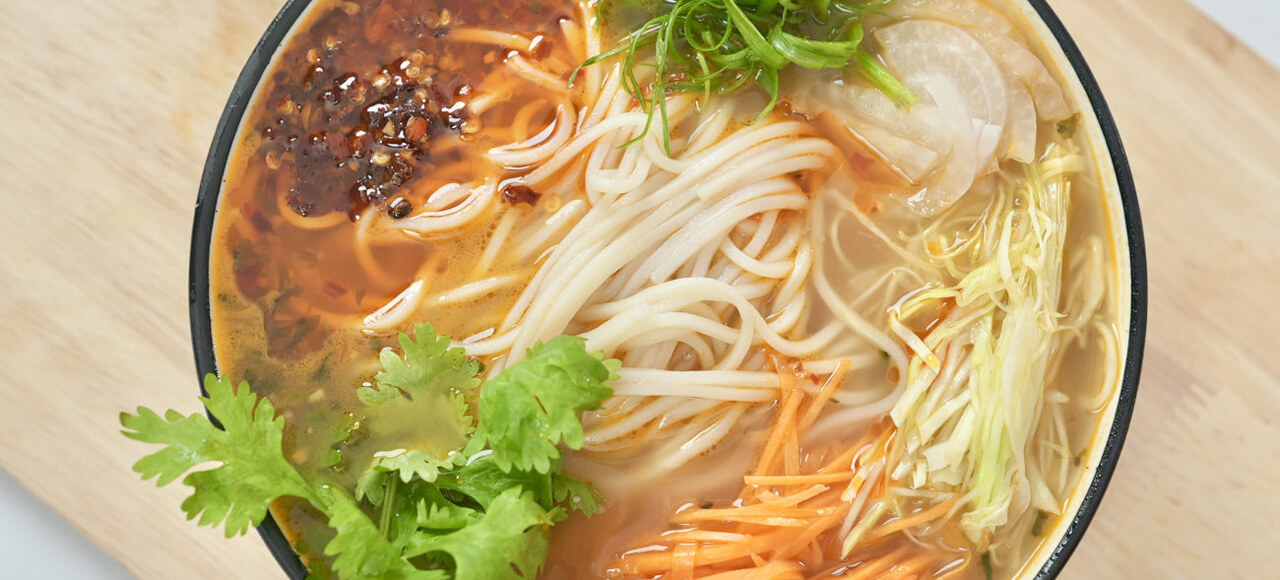
The cuisine of Upper Mustang is a delightful blend of Nepali and Tibetan flavors. Among the traditional specialties, you can enjoy mouth-watering momos (dumplings), thukpa (noodle soup), and dal bhat (lentil soup with rice). These dishes are freshly prepared and bursting with flavor, providing you with the sustenance you need to tackle the challenging terrain.
Ancient Monasteries
The Upper Mustang region is home to some of the oldest and most well-preserved Buddhist monasteries in the world.
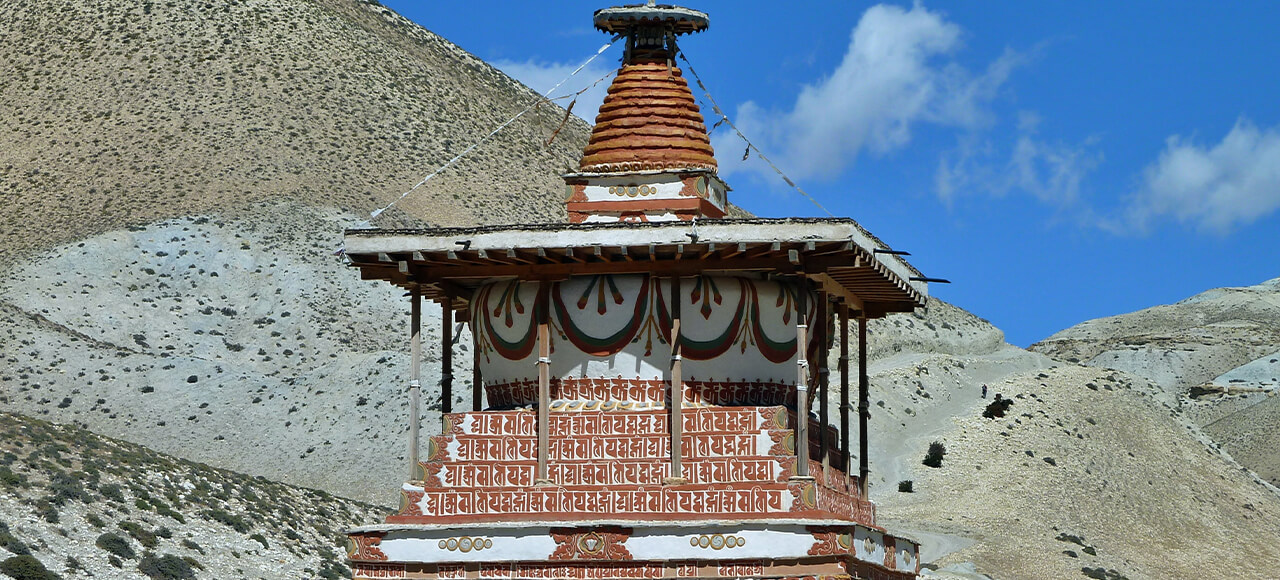
These ancient monasteries some of which date back to the 14th century are perched on hilltops and offer stunning views of the surrounding landscape. They also provide a glimpse into the region’s rich cultural heritage.
The Walled City of Lo Manthang
The final destination of the journey is the splendid walled city of Lo Manthang which was once the capital of the historic Mustang Kingdom. This UNESCO World Heritage Site offers a unique chance to experience a traditional Himalayan city and its culture. While there, you can wander through the narrow streets, visit the local market and marvel at the ancient architecture.
You may also like: Upper Mustang Trek in September: Travel Tips, Weather, and More
Unique Culture
The Upper Mustang region boasts an authentic culture that has remained unadulterated by external influences. Previously a kingdom that barred entry to foreigners until the 1990s, the region’s residents have retained their unique traditions, customs, and lifestyle. During your visit, you’ll have the opportunity to mingle with affable locals, indulge in delectable Nepali cuisine, and gain a deeper understanding of the region’s rich history and cultural heritage.
Challenging Terrain
Ascending to Upper Mustang is no easy feat, as the trail features steep ascents, river crossings, and rough terrain.
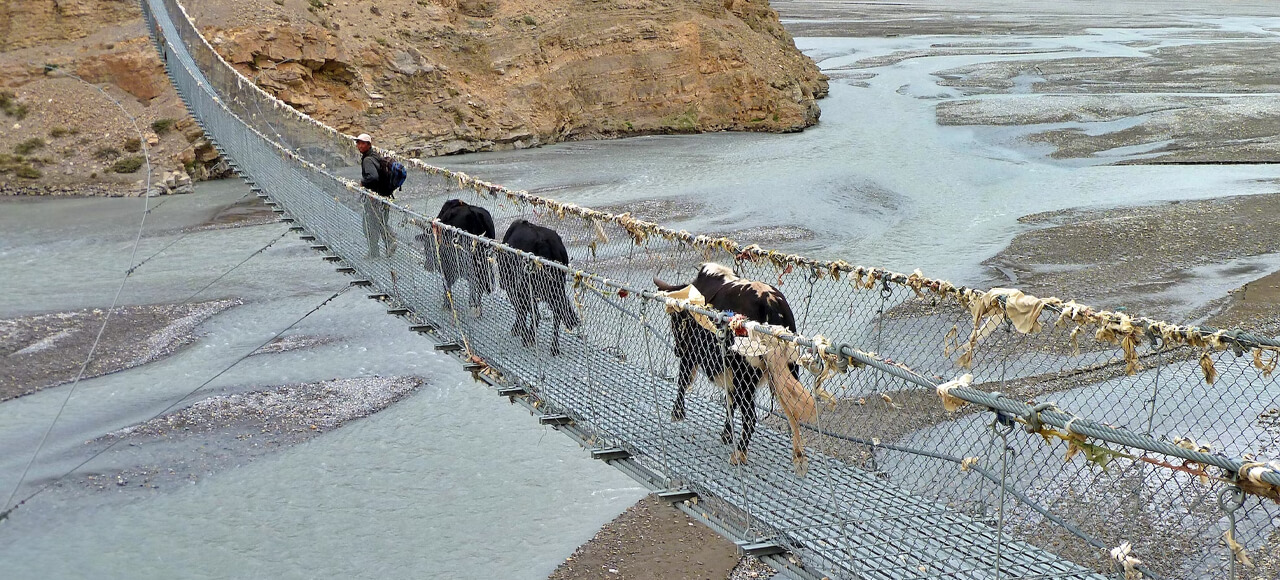
However, the reward is well worth the effort, as the awe-inspiring landscapes and one-of-a-kind cultural encounters create an unforgettable journey.
Stunning Scenery
The Upper Mustang region offers some of the most stunning scenery in the world. From snow-capped peaks like Dhaulagiri, Annapurna, and Mustang Mountains to barren hills and red sandstone cliffs, the landscape is truly awe-inspiring. The contrast between the lush green valleys and the barren hills is striking, and you’ll be left in awe at the dramatic scenery that surrounds you.
Perfect Weather Conditions
November is the ideal time to trek in the Upper Mustang region. The skies are clear, the temperatures are mild, and there is no rainfall. The cool and dry weather makes trekking through the rugged terrain more enjoyable, and the views are absolutely breathtaking.
Kathmandu to Upper Mustang
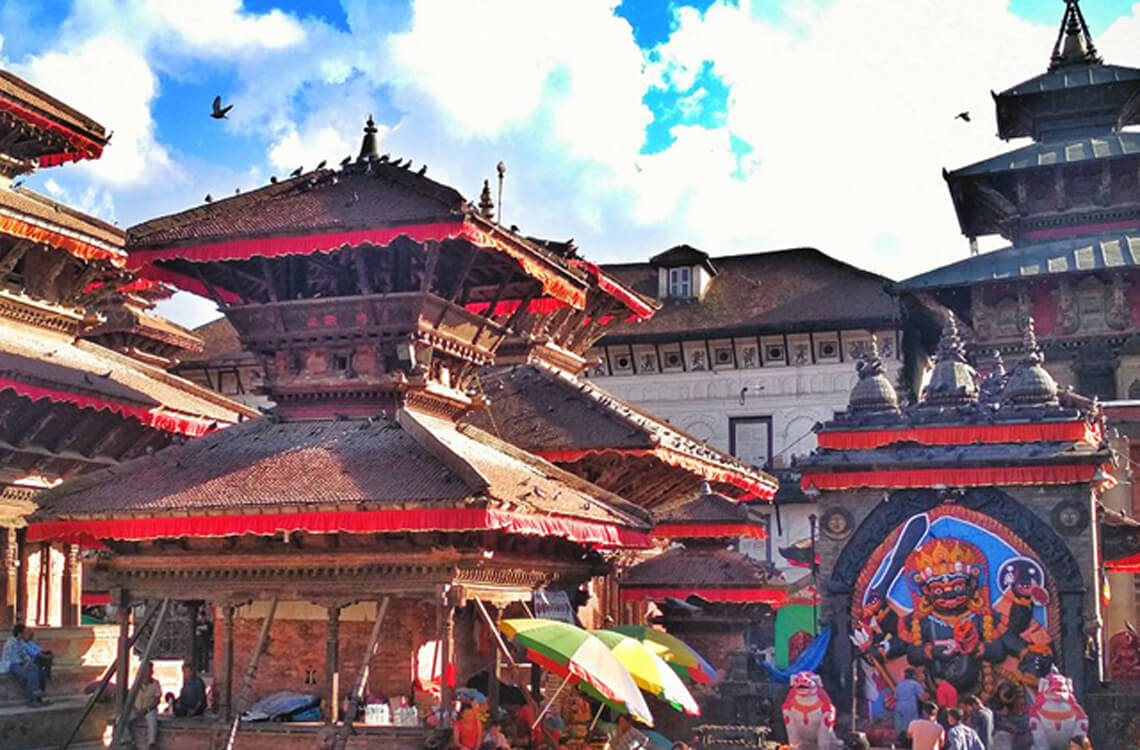
There are several ways to get to Upper Mustang from Kathmandu. Here are some of the most popular options:
By Jeep
You can hire a private jeep from Kathmandu to Pokhara and then drive to Jomsom. From there, you can take another jeep or trek to Upper Mustang.
By Bus
You can take a local bus from Kathmandu to Pokhara, and then another bus from Pokhara to Jomsom. From there, you can take a jeep or trek to Upper Mustang.
By Flight
There is no direct flight from Kathmandu to Upper Mustang. The most common way to reach Upper Mustang is by taking a connecting flight from Kathmandu to Jomsom, which is the gateway to Upper Mustang. The flight takes about 20–25 minutes and offers stunning views of the Himalayan range, including Dhaulagiri and Annapurna. From Jomsom, you can hire a jeep or trek to Upper Mustang. The road from Jomsom to Upper Mustang is rough and dusty, and the journey can take anywhere from a few hours to a day, depending on the mode of transport and the weather conditions.
Required Permits
To trek in Upper Mustang, you need to obtain a special permit called the “Restricted Area Permit” from the Government of Nepal. As the name suggests, Upper Mustang is a restricted area, and a permit is required to preserve its unique culture and environment.
Popular: Upper Mustang Trek in August: Weather, Difficulty, Travel Tips, and More
You must provide a copy of your passport, and a passport–sized photograph, and pay the necessary fees to obtain the permit. As of 2021, the cost of the permit is USD 500 per person for the first 10 days, with an additional USD 50 per day for each extra day.
In addition to the Restricted Area Permit, you also need to obtain the Annapurna Conservation Area Permit (ACAP), which costs USD 30 per person, and a TIMS (Trekkers‘ Information Management System) card, which costs USD 20 per person. Both permits can be obtained from the Nepal Tourism Board in Kathmandu or Pokhara or from the entry checkpoint of the Annapurna Conservation Area.
Festivals
In Nepal, November is an important month for festivals and celebrations. Some of the major festivals that are celebrated in November in Nepal are:
Tihar
Tihar is a five-day-long festival that is celebrated in Nepal in late October or early November. The festival is also known as Deepawali or the Festival of Lights.
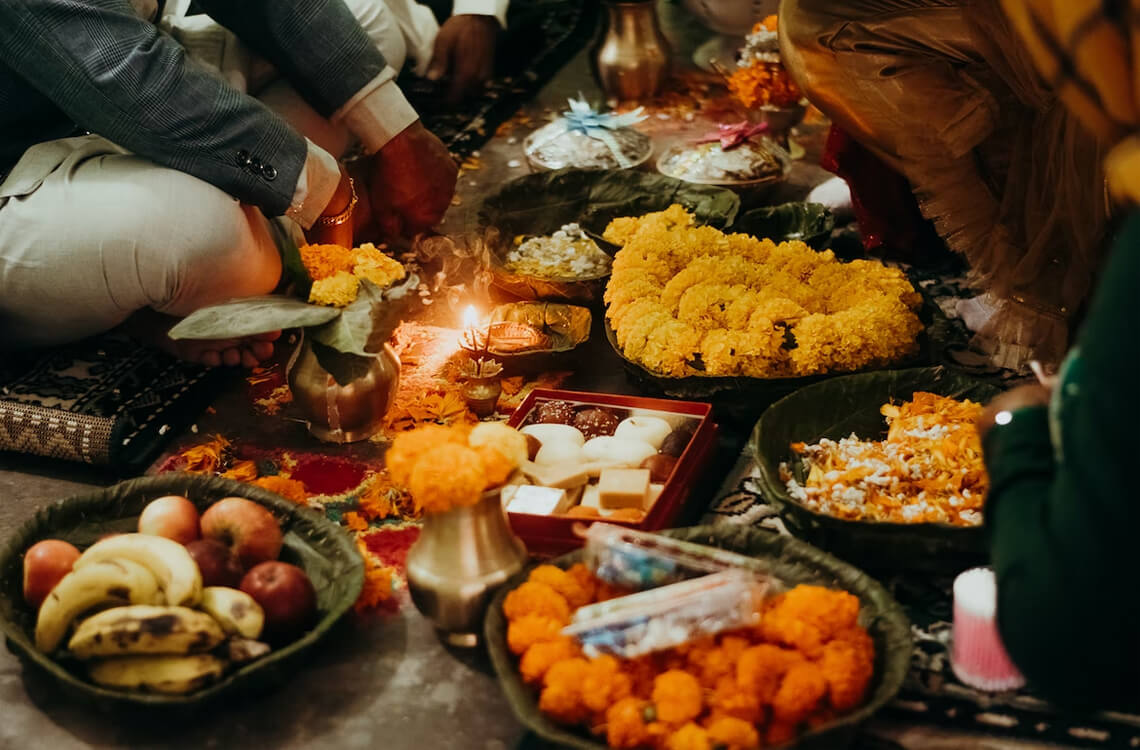
During Tihar, people decorate their homes with colorful lights, oil lamps, and flowers. They also create intricate designs called rangolis on the floors of their homes using colored powders. Each of the five days of Tihar has a different significance and is dedicated to different deities. The festival is especially important for the worship of the goddess of wealth and prosperity, Laxmi.
Chhath
The festival of Chhath is celebrated for four days in Nepal’s Terai area, dedicated to the Sun God, and takes place in November. During this festival, people fast and offer worship to the Sun God both at sunrise and sunset. They also take a holy dip in the river and present prasad to the deity. Chhath is considered one of the most significant festivals in Nepal, especially in the Terai region.
Flora and Fauna
One of the most alluring aspects of the trek is the diversity of flora and fauna that can be seen along the way, especially during the month of November. Here’s a closer look at some of the highlights:
Flora
The Upper Mustang Trek is a mesmerizing journey that offers a glimpse into the diverse flora of the Himalayan region. While the vegetation in November might not be as lush as in the spring, it still provides a unique beauty with a different color palette.
Here are some of the plants that you can expect to see during the Upper Mustang Trek in November:
Junipers
The Mustang region is home to some of the most extensive juniper forests in the world. Their blue-green foliage and distinct aroma characterize these evergreen trees. They also have medicinal properties and are used to make essential oils and incense.
Related: Upper Mustang Trek in July: Travel Tips, Weather, and More
Wildflowers
The trek will take you through vast meadows, which are dotted with an array of wildflowers. In November, you can spot different species of asters, daisies, and Himalayan blue poppies. The blooming season of rhododendrons is over by November but you can still spot some rhododendron trees with their signature red bark and bright green leaves.
Willow Trees
Willow trees are deciduous trees that are commonly found in the Mustang region. They grow near water sources and can be seen along the Kali Gandaki River. In November, their leaves turn yellow, creating a stunning contrast against the clear blue skies.
Fauna
During the Upper Mustang Trek in November, you have the opportunity to encounter various animals in their natural habitat. While wildlife sightings can never be guaranteed, here are some of the animals that are known to inhabit the Mustang region:
During the Upper Mustang Trek in November, you have the opportunity to encounter various animals in their natural habitat. While wildlife sightings can never be guaranteed, here are some of the animals that are known to inhabit the Mustang region:
Blue sheep
Blue sheep, also known as bharal, are remarkable animals found in the Mustang region. With their bluish-gray coats and impressive backward-curving horns, they are well adapted to the rugged mountainous terrain. Living in herds, they form a hierarchical social structure led by dominant males. These herbivores graze on sparse vegetation in high-altitude meadows and are well-equipped to navigate steep slopes with their strong hooves.
Snow leopard
While snow leopards are elusive and rarely spotted, the Upper Mustang region is known to be a habitat for these magnificent creatures. November offers a chance to spot them, especially at higher altitudes. Snow leopards are solitary animals and are highly adapted to the harsh mountain environment.
Himalayan tahr
Himalayan tahr, a wild goat species, can be found in the Mustang region. They have a shaggy coat and distinctive curved horns. Tahr is a sure-footed climber and can be seen navigating the rocky slopes with ease.
Read: Upper Mustang Trek in June: Travel Tips, Weather, and More
Himalayan marmots
Marmots are social animals that inhabit the alpine meadows and rocky areas of the Mustang region. They have a stocky build, short limbs, and a whistle-like call. Keep an eye out for these curious creatures as they emerge from their burrows.
Eagles and vultures
In the Mustang region, the skies are often adorned with various species of raptors. Majestic eagle like the Golden Eagle gracefully soar above the mountains, while carrion-seeking vultures like the Himalayan Griffon Vulture scavenges for food.
Red Fox
Red foxes are adaptable creatures and can be found in various habitats, including the Mustang region. Their distinctive red coat provides excellent camouflage against the terrain. November is the breeding season for foxes, so you might even catch a glimpse of playful fox cubs.
Demerits of the upper mustang trek in November
The Upper Mustang trek in November, although a beautiful and culturally rich journey, does have some potential demerits. Here are a few factors to consider:
Weather and Temperature
November marks the beginning of winter in Upper Mustang, and the weather can be quite cold, especially at higher altitudes. The daytime temperatures can range from mild to freezing, and the nights can be extremely chilly. Trekking in such conditions requires proper cold-weather gear and can be challenging for those who are not accustomed to low temperatures.
Shorter Daylight Hours
In November, the days become shorter, which means fewer daylight hours for trekking. You may have to start your day early and finish hiking earlier to ensure you have enough time to reach your destination before it gets dark. It is important to plan your trekking hours accordingly and be prepared for limited daylight.
Limited Tea Houses and Services
Upper Mustang is known for its unique and ancient Tibetan culture. However, due to its remote location, the number of tea houses and services along the trekking route might be limited. It is advisable to book accommodations in advance and be prepared for basic facilities during your stay.
Let our expert team at Asian Heritage Treks and Travel take care of everything — from guided tours to personalized packing tips and travel arrangements.
Plan My Mustang Trip




